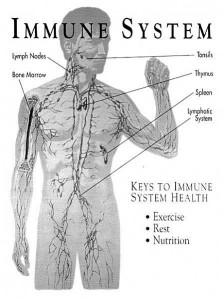Hyperactivity of the immune system can lead to dangerous repercussions in the form of autoimmune diseases. This can cause reversal of the immune system that leads to allergies and damage of vital organs. The components that are responsible for causing damage due to hyperactivity are the T cells.
T cells perform a very important activity in the immune set up of the body. They regulate the functioning of the immune cells and ensure that they are not overactive. More specifically, they control immune mediator production, thereby keeping all the activities under control. The helper cells and regulatory cells of the immune system come into direct contact with each other and cause the control of immune cell activity. These details were revealed by the lead researcher of the study Prof. Peter Krammer.
He also said that the exact manner in which this direct contact helps in the regulation of helper cells is not known although there have been evidences of the complex set of signal transmissions that help in the regulation. When the T cells in the immune system detect alien particles that can be potentially dangerous, they trigger the cells into action. This leads to a set of biochemical reactions. All the genetic activities that are necessary to undertake the attack on foreign bodies are recorded in the helper cell nuclei.

The researchers involved in the study are Peter Krammer along with Angelica Schmidt. Several co-workers were also involved in the study. They compared the differences in the signals generated when helper cells and regulatory cells are in contact with each other and when they are not in direct contact. The researchers found that when the cells are not in contact with each other, calcium ions are not released into the helper cell plasma. Due to this, the functioning of NFAT and NFkappaB, which are two transcription factors that activate the release of immune mediators, are stopped completely. This in turn alerts the immune system.
The manner in which the regulatory cells function can be an important breakthrough with regard to cancer treatments. It has been seen that when regulatory cells do not function optimally, the immune system fails to prevent the growth of cancer cells. In order to fight cancer cells, the suppression of the helper cells has to be stopped. This is also the next goal for the researchers. The major objective of future studies is to find ways in which to reactivate the helper cells that are suppressed by the regulatory cells.